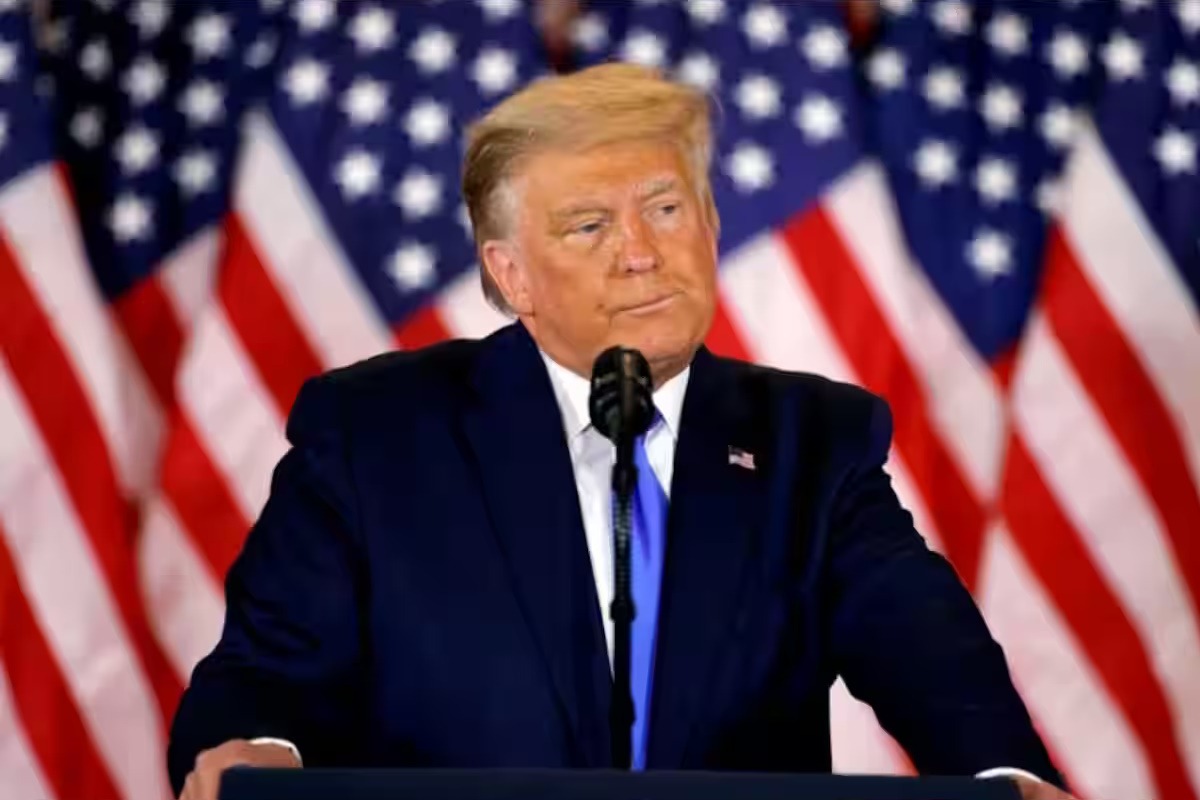Trump’s senior team prepares for the White House

This week, Donald Trump unveiled a slate of unconventional nominees for federal departments, simultaneously advancing a broader objective: to recalibrate the distribution of power among Washington’s key institutions, thereby enhancing the authority of the White House. Trump has indicated intentions to act in ways that could erode the Senate’s confirmation authority and Congress’s budgeting responsibilities—fundamental powers of both legislative chambers. He has maintained that senators permit him to appoint certain nominees directly to their positions, circumventing the Senate’s public hearings and confirmation procedures. He has indicated a willingness to impound—or refrain from utilizing—funds allocated by Congress for initiatives he opposes, a measure that would likely necessitate a judicial challenge to existing legislation.
The transition team of Trump is deliberating a strategy to circumvent the Pentagon’s conventional promotion framework, as evidenced by a draft executive order aimed at establishing a panel tasked with assessing three- and four-star officers for possible dismissal. Should the new president endorse the order, it would empower Trump to dismiss what he terms “woke generals,” individuals perceived as advancing diversity within the military at the potential cost of operational effectiveness.
Leaders of the Federal Reserve are preparing for the possibility of an attempt to dismiss Chairman Jerome Powell, while officials in other sectors are observing whether Trump will act on his campaign pledge to exert more control over independent agencies, including the Federal Trade Commission and the Federal Communications Commission. “These agencies are not entitled to assume the role of a fourth branch of government,” he stated during his candidacy.
Trump has indicated intentions to undermine traditional media entities, advocating for government intervention to revoke certain broadcasters’ licenses. He has initiated legal actions against the Washington Post for purported libel, against ABC for claimed defamation, and against CBS concerning its editing of an interview with his presidential opponent, Vice President Kamala Harris.
In the wake of a recent electoral mandate for change, Trump and his administration appear to be advocating not merely for modifications, but for a significant reconfiguration of governmental frameworks and power dynamics.
“It is evident that his ambition for power is aimed at dismantling the entrenched governmental norms,” remarked former Senator John Danforth, a Republican who served Missouri in the Senate for nearly twenty years. Bypassing the Senate regarding appointments, he asserted, would probably constitute a breach of the Constitution—the fundamental framework that unites us as a nation. Adam Jentleson, a Democrat and former senior Senate aide, remarked, “One cannot examine the broader context without recognizing a president determined to acquire an unparalleled degree of authority.”
A segment of the Republican party expressed satisfaction with Trump’s vigorous approach to reducing the size of the federal government. “The size of our government is excessively large, and it requires significant reduction,” stated Senator Rand Paul. Last week presented a blend of indicators regarding whether Trump’s resounding triumph in the presidential election and his firm grip on the party would compel legislators to align with his demands and concede to the commitments he made during his campaign aimed at transferring greater power to the Oval Office.
Senate Republicans have indicated that Matt Gaetz, the president-elect’s nominee to head the Justice Department—an exceedingly delicate position in the capital—faces significant hurdles for confirmation due to allegations of sexual misconduct and his confrontational approach that has estranged fellow lawmakers. However, indications remained scarce regarding whether Republican senators would obstruct additional contentious nominees, who elicited concern among many in Washington yet garnered support from some for their capacity to unsettle federal bureaucracies and policies. Among the notable appointments are Trump’s selection of vaccine skeptic Robert F. Kennedy Jr. for the position of health and human services secretary, Fox News commentator Pete Hegseth as defense secretary, and former Representative Tulsi Gabbard, who has raised doubts about critical U.S. intelligence evaluations, as the head of the nation’s intelligence agencies.
Senator John Thune of South Dakota, poised to assume the role of Senate Republican leader, offered scant insight into the potential objections from GOP senators regarding a circumvention of the confirmation process by Trump, should his nominees struggle to gain sufficient backing within the chamber. Trump may achieve this by filling vacant positions with appointments made during the Senate’s recess, although such appointees would be limited to a tenure of no more than two years. Thune remarked on Thursday his preference for employing the “regular process” for confirmations, while also indicating to Fox News that “all options are on the table.”
On Capitol Hill, apprehension mounted among defenders of congressional authority regarding the possibility that Trump could attempt an unconventional strategy to compel the Senate into adjournment, a necessary step for the president to execute a recess appointment. The Constitution stipulates that in the event of a disagreement between the House and Senate regarding the timing of recess, the president possesses the authority to compel their adjournment. In a potential development, House Speaker Mike Johnson (R., La.) may expedite a proposal to adjourn both chambers of Congress. Should the Senate express dissent due to concerns over presidential appointments during its recess, Trump retains the authority to adjourn both chambers and move forward with his selections for office.
The legal validity of such a maneuver remains uncertain. In a federal government dominated by Republican leadership, the primary obstacle may arise from dissenting voices within the party, such as Rep. Mike Simpson, who has expressed his unwillingness to comply. “The Senate has a responsibility to fulfill,” Simpson remarked during an interview on Thursday. “The procedure for recess appointments was not designed to circumvent the Senate’s process, at least not with deliberate intent.” Apprehension has emerged on Capitol Hill regarding the possibility that Trump may act on his commitment to challenge the Impoundment Control Act of 1974, legislation enacted by Congress in response to President Richard Nixon’s failure to allocate funds as intended by lawmakers.
As a candidate, Trump declared the law unconstitutional and vowed to dismantle it. “For two centuries within our governmental framework, it has been a settled matter that the president possesses the constitutional authority to halt superfluous expenditures via a mechanism referred to as impoundment,” he stated. According to Bill Hoagland, a former staff director for the Republican chairman of the Senate Budget Committee, such a move “would be a major turnaround.” “This would evidently restore fiscal authority to the executive branch.”
Concerns are mounting that Trump may take unilateral action to implement the recommendations from billionaire Elon Musk and former GOP presidential candidate Vivek Ramaswamy, whom he has appointed to spearhead an initiative aimed at reducing federal bureaucracy and regulations, potentially bypassing court oversight. Trump has asserted that on the first day of his presidency, he would instruct federal agencies to pinpoint expenditures that warranted impoundment. Jentleson suggested that Trump might secure a strategic advantage by preemptively advancing his position ahead of any judicial proceedings, particularly if he receives support from the Republican-controlled House. “Relying on the courts to intervene is likely a futile endeavor,” he remarked. “A significant advantage exists for those who act decisively, as they begin to implement their stated intentions.” With the House’s support, there are few obstacles in your path.
The apprehensions were further compounded by recollections of Trump’s initial term, during which he endeavored to advance several of these identical concepts. He retained funds allocated by Congress for Ukraine, simultaneously exerting pressure on the nation to probe into Joe Biden, his probable opponent in the 2020 election. The House voted to impeach him in 2019 as a result of those actions. The Senate chose not to convict. Utilizing emergency powers, Trump reallocated funds from the military budget without the consent of Congress to finance the construction of a wall along the Mexican border. The Supreme Court ultimately permitted construction to advance while the legal disputes unfolded in a lower court.
Judd Gregg, a Republican who served New Hampshire in both the House and Senate, asserted that Trump is justified in his efforts to reduce the size of the federal bureaucracy. However, he believed that Trump had erred in selecting certain nominees, asserting that they lack the requisite experience to navigate the complexities of the agencies they aim to reform. Gregg remarked that the nominee for defense secretary, Hegseth, will likely take a considerable amount of time to acclimate to his new environment. The Pentagon operates as a distinct institution. Without a thorough understanding of the dynamics at play within the military, effecting meaningful change will prove to be a formidable challenge.
Senator Dan Sullivan (R., Alaska), a recent retiree from the U.S. Marine Corps, noted that defense secretaries have historically faced challenges due to the Pentagon’s internal processes. “Engaging external individuals to invigorate that establishment is a commendable strategy,” Sullivan remarked.







